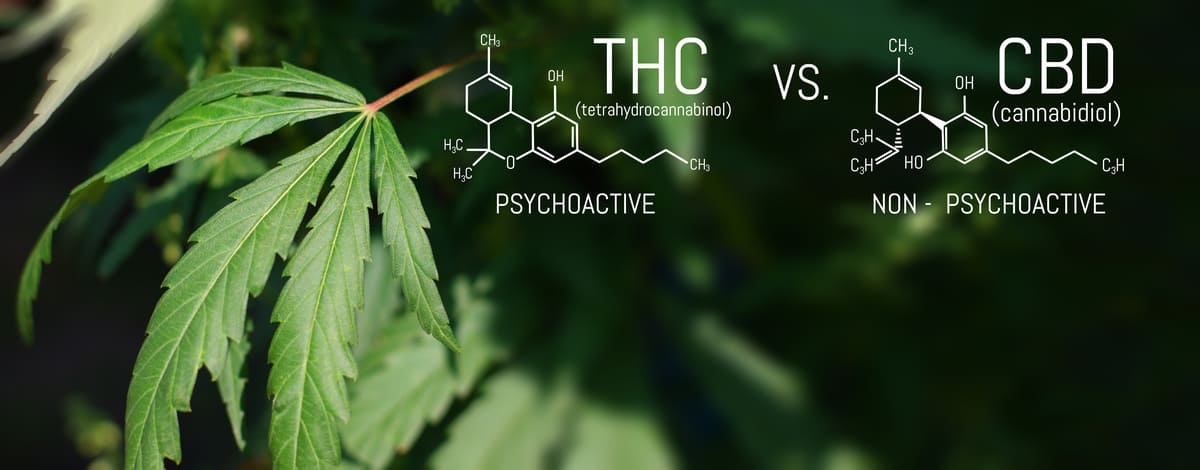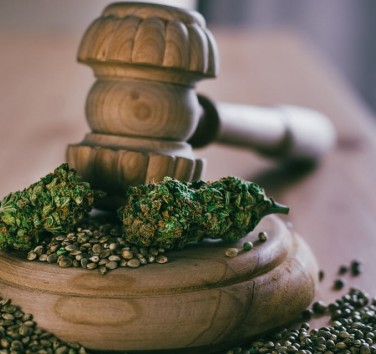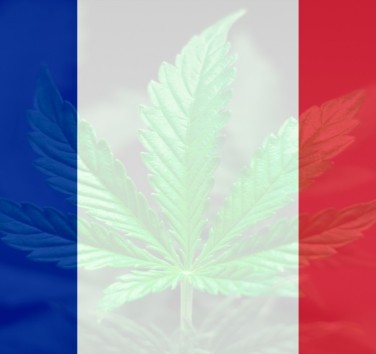What is cannabidiol?
Cannabis, often associated with drug consumption, is one of the most widespread substances in France. This negative perception has long eclipsed interest in the non-psychoactive components of the plant, notably cannabidiol or CBD.
It is fascinating to discover that the Cannabaceae family, to which cannabis belongs, conceals many other treasures than just the psychoactive substance. In France, although the consumption of cannabis is illegal, it is essential to distinguish the different components and their properties to understand the complexity of this plant.
Cannabis Sativa, also called hemp, contains cannabidiol (CBD). Unlike THC, CBD does not have psychoactive effects but rather presents potential health benefits. Despite this, many prejudices persist, associating CBD with the harmful effects of cannabis, while 'in reality, this component is non-addictive and considered safe.
Unfortunately, even today, it is a component that is victim of the many prejudices that incriminate it. So, in reality, the green molecule remains safe and does not cause addiction.

Impact of CBD on mental and physical well-being
In recent years, numerous studies have begun to highlight the potential benefits of CBD on mental and physical well-being. Among common ailments, anxiety and depression top the list of disorders for which CBD appears to provide relief. According to several researches, CBD acts on the body's endocannabinoid system, helping to regulate mood, sleep and pain.
Additionally, chronic pain and inflammation are two other areas where CBD has shown promising signs. Athletes, in particular, are increasingly turning to CBD as a natural alternative to traditional nonsteroidal anti-inflammatories. Preliminary studies suggest that CBD may help reduce pain and inflammation without the side effects commonly associated with prescription medications.
The difference between CBD and THC
CBD, or cannabidiol, has often been overshadowed by the prejudice surrounding its plant family, mainly due to confusion with THC, or tetrahydrocannabinol. While cannabidiol is praised for its therapeutic properties that can relieve various conditions such as cancer, migraines or eating disorders, THC has often been singled out for its psychoactive effects.
The particularity of tetrahydrocannabinol lies in its psychoactive potential, causing adverse effects such as a feeling of anxiety or panic, difficulty concentrating, confusion and drowsiness. This is why French legislation prohibits the consumption of cannabis containing a significant amount of THC, considering it a potential threat to individual health and public safety.
On the one hand, CBD is a natural hemp compound authorized for consumption under certain conditions. On the other hand, the consumption of cannabis with a high THC content remains an offense severely punished by law, whether it is consumed for recreational or therapeutic purposes.
Finally, CBD is increasingly recognized for its properties helping to fight certain addictions. This is why many people turn to it to try to free themselves from addictions such as tobacco or cannabis.

The status of hemp in France
Recently, the Minister of Health officially recognized the therapeutic benefits of CBD on the human body. This recognition quickly led to legalization of its use. However, as is often the case with controlled substances, this legalization comes with strict conditions. For example, whether cosmetic products or other derivatives, they must not contain more than 0.3% THC.
Despite this legalization, some ambiguity remains regarding the regulation of cannabidiol. While the number of consumers continues to increase, they do not have complete freedom in how they want to consume it. CBD is available in several forms: flowers, oils, capsules, e-liquids or food products. However, regarding CBD flower, it is important to remain vigilant. Indeed, the latter, by its appearance, can be easily confused with traditional cannabis rich in THC.
So, to answer the main question of this article: no, CBD is not considered a drug. France has ruled that this molecule cannot be classified as a narcotic, given its proven beneficial effects on health.
However, a warning is necessary: to ensure the conformity of your CBD products, always check their origin and their content. To do this, favor purchases on reliable and secure sites, such as 321CBD.
The economic implications of CBD
With the gradual legalization of CBD in many countries, the CBD market is booming. The growing demand for CBD products has led to a significant increase in production and distribution, opening up new economic opportunities. The CBD industry in Europe, for example, is estimated to be worth several billion euros, with growth expected in the coming years.
This economic growth has resulted in the creation of thousands of jobs, ranging from hemp cultivation to distribution to research and development. New businesses have emerged, and investment in the CBD sector has grown exponentially. Governments have also recognized the economic potential, putting regulations in place to ensure product safety while collecting lucrative taxes.
However, with growth also comes competition. Many companies are racing to get a piece of the lucrative CBD market, leading to potential saturation. Plus, with so many products on the market, the quality varies wildly. It is therefore essential for consumers to choose trusted products, as we offer on 321CBD.
The industry also faces challenges with regulation and public acceptance, because although CBD is widely accepted, there are still many myths and misunderstandings.










